|
This week, we had the privilege of speaking with Mike Mantel, president and CEO of Living Water International on the podcast. Jeff and I are convinced that this is the most important interview we've ever done at 200churches. The threat and impact of the Ebola virus are very real, and as Mike points out in our interview, the virus is projected to have infected 1.4 million people by January. Our conversation with Mike focuses on specific steps that your small church can take to deal with this threat. There is no doubt in our mind that Christians have a responsibility to step up and get on the front lines of fighting this crisis. Our primary responsibilities are to raise awareness, lift up those areas affected in prayer, and give resources to those who are on the ground in west Africa. Yesterday, the first confirmed case of Ebola was diagnosed in the United States. While we believe that the lives of all who are affected are valuable, the fact that the infection has traveled highlights that this is an issue we can't simply ignore in the hopes it will disappear. Our encouragement to you is that you would do the three things Mike brought attention to in the podcast:
1) Make yourself aware of the issue and educate yourself about Ebola 2) Lift up the areas and people affected in prayer 3) Donate to efforts to stop Ebola and encourage your churches to do the same Beyond Living Water International, we would also encourage you to check in on the efforts your denomination might be making to fight Ebola. The compassion branch of our denomination has many on the ground working to stem the tide of this virus, and yours may also have efforts in place. Battling this outbreak on multiple fronts is vital to stopping it before more lives are lost. Our prayer is that you would hear this interview and be moved to make a donation and encourage your members to as well. By the grace of God, we can make a difference in the lives of those who are affected by this horrible virus, not only for this world, but also for the next. Last week I (Jeff) had an experience that reminded me that leadership is a team sport – not a solo sport. If you are a leader, I hope you’re on a team. Because when you start performing at too low of a level, you’ll need a teammate or teammates around you who can let you know, and help you to get better. My wife and I traveled from northwest Iowa to Vail, CO for a denominational gathering. Ostensibly, a retreat. Yeah. No. Not for me. It was a grueling grind. After arriving back home, and upon further research, I have discovered that experts on altitude sickness have no way of knowing who will get it and who won’t. A person’s fitness level or gender play no role in whether or not he or she gets altitude sickness.
The symptoms of altitude sickness which I developed to a severe extent were: headache, fatigue, sleeplessness, confusion, and, what one article on WebMD said “In severe cases, you do not have the energy to eat, dress yourself, or do anything.” Well I managed to eat and dress myself, but it took longer, like moving through a fog of indecisiveness. So yes, I had altitude sickness for a couple days at 8,400 feet. Traveling around we went as high as 11,400 feet. I love an adventure and I love the mountains, but they don’t love me! The crazy thing is this – I did not know why I was feeling so terribly. I knew that in the past I had not done well at high altitudes. I was nervous before we left that I would not feel well or sleep well. I even told Jonny where my life insurance papers were in my office, should I not return! Even after all that, when I was there, I thought I was handling the altitude well, but could not understand why I was completely exhausted. I thought I was just getting old. Really. I was blind to the cause of my weakness. I needed my wife to diagnose the problem. She told me. As we traveled east, and out of the mountains, she gave me some Ibuprofen and by the time we got back to 2,500 feet, I was a new man! I felt great! Sometimes as a leader, we get a little too high, and we get lightheaded. We’re short on oxygen and don’t make the best decisions. We think we’re doing okay, but we’re really not. We’re moving slower, interpreting reality differently, and not bringing an acceptable level of performance to the game. And the problem is, we don’t see it. We make excuses and defend our actions. We think it’s just a stage we’re going through. We blame failure on others. We’re blind to our weaknesses. We need someone else to step in and inform us that we’re just not getting enough oxygen, that we have altitude sickness. Who on your leadership team has the permission and authority to tell you that you have altitude sickness? Who is there around you who can tell you that you need to get to a lower altitude for a while to get better? Who has the gravitas to inform you that your performance is no longer acceptable? I am not referring to a demotion, but to getting some much needed help. My wife warned me before we went. I didn’t listen. She asked me when we were there. I didn’t hear her. I was like the proverbial frog in the kettle, as the water got to the boiling point, I didn’t know enough to jump out! Finally, she gave me a reality check and helped me understand. Now I see it! I could not see it in my fog of disorientation. All we need to do is one thing. Let’s not lead alone. Let’s give another or others the permission to help us lead. Then, when our kettle starts to warm up, someone is there to yank us out! Who’s on your team? It was in March of my first year of law school when I started to get the feeling that maybe I wasn't doing what I was supposed to be doing. What started as a little tinge of a thing that I tried to shake off soon ballooned into a full on crisis. How could I quit law school? What would people say? What were my other options, anyway? I sat down with my wonderful wife to talk about it, and despite all my nerves that she would fall somewhere between devastated and aggravated, was blown away when she calmly said alright, lets figure this out. Jeff and I with our wonderful friend, Phil. Apparently, Jeff wasn't as happy to graduate as we were. It only took us about 15 minutes at Bethel to know that it was the right move to make. I will never forget perhaps the oddest moment of our visit was when some weird guy burst into a room full of prospective students, loudly announcing his (late) entrance to our little meeting. I knew right away he was interesting, but I could never have guessed the plans God had for us.
A few months later, I had left law school and was preparing to make my first trip to Bethel as a student. I was nervous and a little apprehensive, but also full of faith that I was walking on the path God had placed me on. By the end of that first day, I had about a dozen new Facebook friends and all the confirmation in the world that the next 4 years would work out just fine. ------- I think that when a person first starts seminary, they're expecting that they will learn things about God and their faith. I certainly thought that I was starting out on a "fact-finding" mission of sorts. To use math as a metaphor: I figured I had mastered Christianity to about an Algebra 2 level, and seminary would push me into the Calculus and Trigonometry realm. I'm sure there are places where learning looks like that, but I'm very glad that I didn't end up at one of those. Recently I was talking with a college student who is considering seminary and I told him walking into seminary, you have a neatly packaged faith and worldview. You have all the pieces put together just how you like them. Seminary takes all that, and disassembles it for you. Then, once all the pieces are scattered around you, they help you put it back together. It might look the same, but it probably won't. And that's a good thing. ------- By my second year of seminary, I was way off of the outlined course structure for my program. Kayla and I were adopting our son, Joseph, and I was working full time while trying to be a helpful intern at our church. Even in all the craziness, I never considered quitting. Lots of students already had at that point. That's pretty normal, we were told, a lot of people have great intentions for seminary, but life gets busy. The thing that kept me going were the friends I had made so far. There were so many students, faculty, and staff who I knew were pulling for me. Their support helped me navigate the business of life and the responsibilities of seminary. Through their love, I realized that while I initially enrolled in seminary for knowledge, what I got along the way was a lifelong group of friends. Real, deep friendships with people who knew me for who I was, and loved me for it. ------- I like to say that the day I graduated from college was the best non-family related moment of my life. It was this massive sense of accomplishment. I couldn't wait to relive that feeling at my seminary graduation. Over the course of four years, I had accumulated hundreds of books, read thousands of pages, and learned so much about God and the Church. But as graduation approached, I began to realize that while finishing would be amazing, it would be more bittersweet than my college graduation. Most people make lifelong friends in college. Because I was a transfer student, I never lived in a dorm, so while I had friends throughout undergrad, I've lost touch with nearly all of them. When I graduated, it was a celebration of completion without the pain of missing all those I loved. In my four years at Bethel, however, I had built so many amazing friendships. And like clockwork each year, we would spend a week or two together, catching up, and deepening our relationships. Graduation meant those weeks were over. It meant saying goodbye to a lot of incredible people. ------- When we sat down with Danielle to record Wednesday's podcast, we didn't really know what we were getting into. We knew we were talking about seminary and adult education, but we had no idea that the conversation would swerve so dramatically toward talk about cohorts. Thinking about it now, I'm not surprised that it did. I will always remember my time at Bethel with great fondness, and deeply appreciate the education that I received. But what made the whole thing special, the reason that I stuck with it, and the source of so much value wasn't the books or knowledge, it was the relationships. In the end, I couldn't have had my worldview challenged without a community to help me put the pieces back together. I couldn't have grown to understand and love God more without His body gathered around me, pressing me further than I would have been able to go alone. Ultimately, seminary meant more to me than I could have ever hoped or imagined. Graduation might have been bittersweet, but the memories are straight sugar. Oh, and that crazy guy who showed up late the first day? That was Jeff. It's not just lifelong friends and a new worldview I got at seminary, it was also an incredible friend, mentor, and boss. So how about you? Are you ready to go back? Ready to get some more education? MDiv? DMin? Maybe even a PhD? Take the step. Make the leap. You won't regret it. I know I don't.
BEWARE, BEWARE! This episode breaks the all time length record for our podcast! It's 58 minutes full! We just had too much fun talking about continuing education and our experience together getting our Master's degrees while still in full time ministry.
We talk with Danielle Dworak, the Associate Director of Student Development and Support at Bethel Seminary in St. Paul, MN. Danielle is our good friend who helped us along the way in our four years at Bethel. She is a firebrand who can go toe to toe with the biggest, meanest seminary student and make them cry! (That might be a little exaggeration, but not really!) Episode 89 recounts the challenges and opportunities of getting your advanced degree while you are still doing family, life, and ministry. It is quite a challenge, but completely doable. Bethel offers a number of advanced degrees, including Master's of Christian Thought (intersection of theology & culture), Master's of Marriage and Family Therapy, Master of Divinity, Doctor of Divinity, etc. Most importantly, we as small church pastors must be lifelong learners - that is the real lesson and encouragement of this episode. We hope you enjoy it! The term “lifelong learner” has been around for quite a while. It describes a person who never stops learning. I have been a pastor for over 25 years. I have had people in my churches in their 50’s who, for all intents and purposes, had stopped learning. They were no longer curious or interested in anything new. That, was very sad.
I have also had very elderly people, into their 90’s, who still had that magical twinkle of curiosity in their eyes! They would never stop learning until the day they died. John was 93 when he died. He died with a whole list of things in his head that he was still wondering about, still investigating, still curious about. The wonder and beauty of the world was still something that captured his attention, and he marveled at it. Are you, Pastor, still learning and growing? I hope so. I hope you haven’t figured it all out yet. If you have, there is a whole new pile of stuff to take a look at, and another pile, and another after that! This week on the podcast we have Danielle Dworak, from Bethel Seminary. Danielle works with pastors who are going back for their next degree. I (Jeff) received a great four-year Bible College degree. I got a Bachelor’s in Bible and Pastoral Ministry. Then I got my Master’s in four children! When my oldest was approaching graduation from college in May 2010, I realized I needed to go back and get my real M.Div. So, at the age of 47 I went back to school. Danielle is the lady who helps pastors like me navigate the crazy waters of the Bethel “InMinistry Program”. On Wednesday, on episode 89, Danielle talks to Jonny and me about what she has learned in that role, and in turn asks us questions about what it’s like to finish Seminary while still serving fulltime in your ministry position. Not just at Bethel, but all around the country, education is becoming more accessible and more affordable than ever for men and women in ministry. In episode 89, we are going to challenge you to consider going back. One strategy, more than any other, caused me to learn the most in my four years at Bethel. Here’s what it was… In most of our classes we were exposed to authors and professors who did not teach us what to think, but shared with us several disparate views, from people who supported them, and allowed us to decide where we were positioned on the topic. From conservative to liberal – from dispensational theology to liberation theology, we read from a wide range of authors and positions. Reading from people who think opposite of you allows you to refine your own beliefs, and appreciate that others have very valid and understandable positions on theology, ministry, society, and the life of a disciple. Thirty years ago, in Bible College, I was taught what to believe. Thirty years later, I was taught how to think, discern, navigate, and learn. I was then exposed to many viewpoints, and the rationales behind them, and allowed to construct my own theological convictions. When was the last time you read someone who disagreed with your framework or worldview? When was the last time you appreciated the position and understood the viewpoint of someone with whom you vehemently disagreed? I remember reading some liberal theologians and thinking, “Wow, I always thought they were crazy! Now, I understand why they think the way they do.” Sometimes I would still disagree, and sometimes I would change my opinion and agree with them, but always I would come away with a greater appreciation for the body of Christ and theologians who were seeking truth, and the God of truth. This week you should go to Amazon.com and find a book who’s author espouses a different opinion than you hold on a theological or ministry issue. Read it. Understand it. Appreciate it. Then, ask yourself what you learned from it. Do you still hold to your previous position? Does it sway your thinking at all? Why, or why not? We know you’re going to enjoy episode 89. But be warned: this is the LONGEST episode in the history of the 200churches Podcast. So enjoy – there’s lots of good stuff in there! But you might need two or three go-arounds to finish it. Don’t worry though, even though it’s longer, it’s still the same price - FREE! Never stop learning. Never let the twinkle leave your eye! Always be curious! This week we’ve talked about mental health issues and challenges, especially as it relates to ministry. Rick Warren is famous for saying “God never wastes a hurt”. John Maxwell has said something to the effect of, “when you fall down, you might as well pick something up while you’re down there.” And, I think it was Chicago mayor Rahm Emmanuel who said, “You never want a serious crisis to go to waste.” Therefore, I would say, “the more you hurt, the more you care.” The more hurt you experience, the more you will care about those who hurt.
It’s funny how my wife and I move quickly toward people who suffer with panic or anxiety. Interesting how I care about those who have alcoholism in their family. With each added hurt, we gain a new ability to care. In some of my research this week I passed over a Google search item that said, “What pastors can learn from Depression”, or something like that. I did not want to read about all the good things that can come from Depression. I did not even click on it. I thought it would be a pile of spiritualizing dither, attempting to invalidate someone’s pain. Yet today I find myself thinking about the upside of suffering. I mean, nobody ever signs up for it. Suffering, that is. No one wants it. It comes normally out of the blue, unwanted, despised even. We want to have a good year, a nice day, or a fine time – yet here comes Suffering, strolling down the street toward us, in all its hideous glory. Like Jesus speaking to Nicodemus, Suffering says, “I am coming to your house today!” Mental illness holds its own special brand of suffering. It’s one thing to have to bandage a wound, put a cast on a limb, or take antibiotics for infections. It’s another thing altogether to not be able to trust how your brain is processing information, or establishing any of a range of emotions. We lose trust in ourselves, our ability to discern and/or understand the reality in front of us. If you as a pastor have experienced this, then great – you have a special ability to now care for others who deal with it! If you are having to help and/or counsel people dealing with mental health, and you haven’t suffered with it, consider talking to someone who has, to gain at least a second hand understanding of it. If you’re always “having a great day!” as a pastor, you won’t be able to come alongside people who are hurting. You have to hurt, to help those who hurt. So if your hurt is in the mental health area, then, well, you might as well pick something up while you’re down there. Yes, don’t waste that crisis or that hurt. Finally, I came across a FANTASTIC article written by two pastors who have experienced burnout and depression and lived to write about it. The article is over 7,000 words long and really covers every angle of the topic completely. The link is below – you will really enjoy it, learn from it, and be encouraged by it. It’s also a great resource for helping yourself or others struggling with either burnout, depression, or both. Coming Out of the Dark: Two Pastors’ Journey Out of Depression There is a companion article for Pastor's wives right here: Coming Out of the Dark: Two Pastors’ Wives Share in Their Husbands’ Journey Out of Depression This weekend, spend a few extra minutes looking some of your folks in the eye, and listening to their hurts, fears, and problems. Take the time to get to know your people, then love them, then feed them… and only then, can you lead them. Remember, don’t completely despise hurt and suffering. Because, the more you hurt, the more you care. Have a wonderful weekend!
On our blog post for Monday, September 15, 2014 Jeff shared his story of walking through the valley of anxiety and panic with his wife, Debbie. He talked about how they didn't know what was going on, why she would have panic attacks, and why anxiety was her daily companion. It took them ten years before they found help... in their doctor's office.
On today's podcast, episode 88, Jonny's father recounts his virtually life-long experience with depression. As a pastor for forty years, he has been in the depression management business the entire time. Wait until you hear when he finally began to talk about it and reach out for help! (hint: you'll only need the fingers on one hand!) Our desire is for YOU to find help and hope a lot sooner than Jeff and his wife did, or than Jonny's father did. In our day medicine has figured out so many of the mental health mysteries. There's more discovery to be had for sure, but we are so much farther than we were in the 60's... or 90's. Jonny's Dad, David Craig, has written a book about depression, the first of a trilogy. You can find his book, The Birds Sang A Sad Song, here on Amazon, or at his website at DavidCCraig.net. Are you suffering with challenges related to mental health? Please get help! You don't have to face it alone. That is the LIE that so many people with mental health problems face - "no one cares, you are all alone". People do care about you, you are NOT alone. RESOURCES TO HELP YOU First, if you feel that you have no one, try us! Email us at [email protected] or [email protected]. Here are a couple websites that offer help. We cannot vouch for everything on these sites, we're just small church pastors, after all! But, they are a place for you to get started:
I thank God that nonaddictive medication is available. Medication for depression is not like sleeping pills or Valium. Antidepressants are nonaddictive. They are taken until one’s body learns to produce enough serotonin again and a person is able to get proper rest. When a person breaks his arm, he wears a cast until it heals. It is a similar process with serotonin. When I pastored, I frequently worked with ministers who were in severe depression. I recommended they visit a Christian psychiatrist or psychologist, get on antidepressants, and get balanced out. It is okay to get help. Antidepressants are a great gift. They are like insulin for a person with diabetes. What would we do without insulin? It was the late summer of 1990. With two kids under three years old, and a husband who was working 70 hours a week, obviously my wife was going through “a tough stage”. She was having a hard time. I was working a lot, and not really completely tuned in to her struggles. This stage will pass as the baby gets easier to take care of, I thought. My memory is a bit foggy on the details, but I remember that her doctor couldn’t really help her and she ended up in a neurologist’s office. He suggested an MRI to rule out a brain tumor. What?! A neurologist wants to rule out a brain tumor?! It sounds pretty serious to me, now 24 years later. I knew then it would show nothing. She was fine. I knew my wife. She just needed to think more positively. Obviously, the results came back from her MRI – all was clear, no problems. I knew it.
She was a good soldier. A ministry wife. She did what she needed to do to serve the Lord and support her husband and church. But the struggles continued. They eased considerably while she nursed each of our four children. That should have been a clue. But, what did we know? We just prayed more. Ten years later, in the summer of 2000, I fell asleep one night while she was reading next to me in bed. I woke up almost 8 hours later to find her still reading. “Did you…?” I asked. “No”, she replied. Sleeplessness. She had a woman in her Bible study who couldn’t sleep and ended up in the mental health ward of the hospital. She thought, “what if I can’t sleep?” Sure enough, she started to have trouble sleeping. When she experienced three sleepless nights in a row, we both knew we were in trouble. It was 2000. Pastoral families were supposed to have it together. Obviously this was a flaw. What was wrong with us? My wife had four children at home, and she was homeschooling three of them. She needed her sleep. She spent the next night praying, crying out to God, and reading her Bible, along with every note she’d ever written in it. “God, I’m not asking for a ‘want’, I have a need, a big need, I just need to sleep. I have four kids God!” But the sleep only came once ever second or third night. God was silent. We had been abandoned. And then the panic attacks became more frequent. We didn’t call them that then, we didn’t know. For no reason, in the middle of anything, my wife would begin to melt down. She needed to go home, to quit whatever she was doing. She needed to retreat. After some terrible times, and honestly, after much personal suffering that I’ll never truly appreciate on my wife’s part, we broke. We were devastated, exhausted, and out of options. I called one of our deacons, who was also our doctor. I called him at home on his day off, because to make it a big deal in the doctor’s office just didn’t seem right. And, we wanted confidentiality. Ministry couples shouldn’t have these kinds of problems. I explained to him what was happening. “Oh Jeff,” he said, “every single day I see people in my office for the same type of thing. The good news is, I can help your wife, the bad news is it’s going to take about two to four weeks.” Hey, that was ALL good news to me! I could feel the dread leaving my body, and for the first time in many months, I had HOPE. I had hope that my wife would get better. I knew she was fine. There was nothing wrong with her. She was a wonderful woman, godly wife and mother, my best friend, and a good ministry soldier. She just needed to think positive, I thought. The diagnosis? A chemical imbalance in her brain. Treatment? A pill. Wow. Within two weeks she was sleeping. Way fewer panic attacks. Much less anxiety. In several months we had figured out what she needed by way of a prescription, and soon she was 95% better, which was a miracle for us. Today it’s just called “mental health”. Some people have trauma or abuse, others have addictions. My wife’s only trauma was being married to me – but she simply had an imbalance in her brain chemicals – and when that was treated, she recovered. Today, fourteen years later, she still takes half a pill, every night. She understands her brain, her emotions, and how she feels. She knows how to manage average anxiety, and she knows when she may be in for a season of needing the whole pill every night. She’s prescribed the whole pill. But mostly, she’s good with just a half. I’ve given you a thumbnail sketch of what our struggle with mental illness was like. My wife could tell you story after story of her suffering from 1990-2000. Prozac was first prescribed in 1990. All these SRI drugs have been developed since the year my wife had an MRI of her brain. But today they are available for you, just like Diabetics and blood pressure patients have their own drugs. If you are struggling with mental illness of any sort, please get help. There is HOPE on the other side. All my wife needs is 5mg a night to have her life back. It’s way worth it. And, for us, none of it was spiritual. We prayed, cried out to God, for years. He was waiting for us to just go to the doctor. Oh, that. I know that’s not everyone’s ailment and diagnosis, but it was ours. And, maybe it’s yours. Get help. Call your doctor. Pastors and their spouses need to be cared for too. This Wednesday on episode 88, we talk with David Craig, Jonny’s dad. David has suffered with Depression for decades, all the while serving as a pastor, and he tells his story this week on the 200churches Podcast. I take health for granted. How’s my cholesterol? Beats me! Do I have some lurking issues that are just waiting to spring up on me? Who knows! Because I can fake health via a good metabolism and ridiculous good looks (at least according to my wife…) I just act like I’m healthy--even though I do not live a healthy lifestyle.
Episode 87 with Erik Anderson is a fast moving account of his journey to pastoral/personal health in ministry. Erik, Jessa, and their beautiful daughter Nosipho do life together in St. Paul, MN. From the Midwest, they spent six years in youth ministry in California before returning to the landlocked middle of the country.
Erik is the Senior High Youth Pastor at Crossroads Church in Woodbury, MN. If you really want to peek in on #theandersonwayoflife, you can find their blog here! They are a riot! Jessa is a fantastic photographer and you can see some of her work here. Erik and Jessa are ministry people. They pretty much live for Jesus/Family/Ministry/Kingdom/Love, and we're not sure they always know which sphere they're in! At the end of the podcast, Erik shares the four ways that he is currently trying to stay healthy in ministry - with you:
If you enjoy this episode, you'll absolutely love Episode 66 - How One Pastor Survived Burnout In His Urban 200church!
|
Welcome to the 200churches blog! We have hundreds of posts covering every issue imaginable. So pull up a chair, pour a cup of coffee, and stay awhile.
|



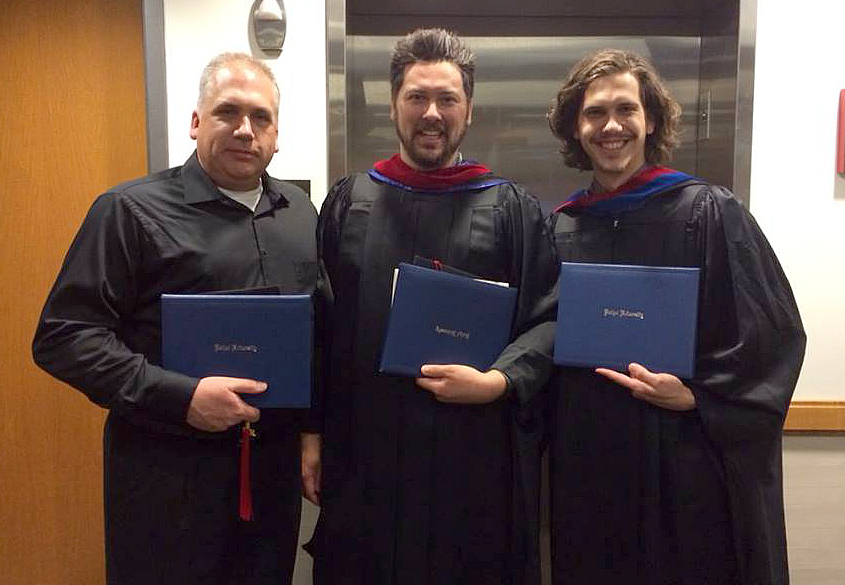



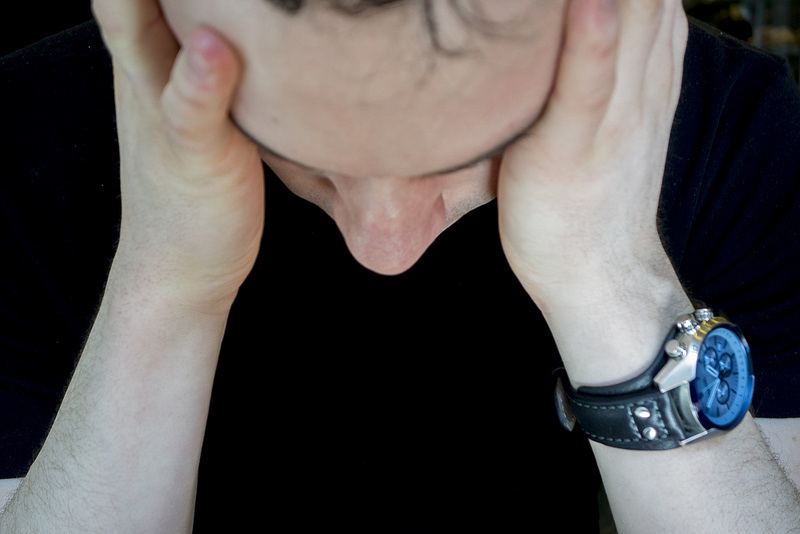
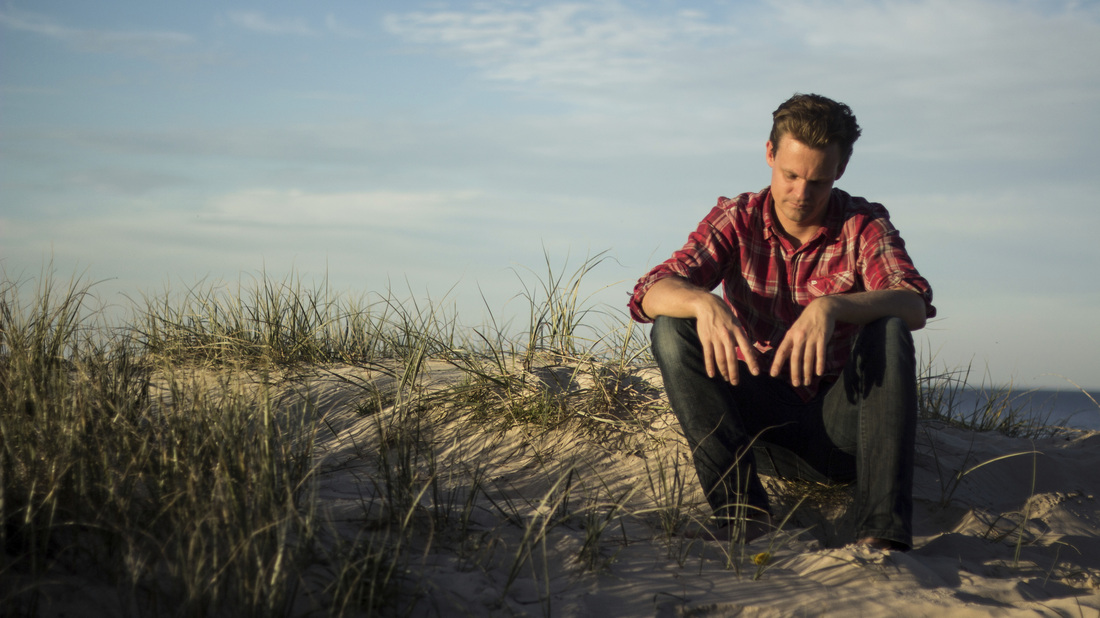
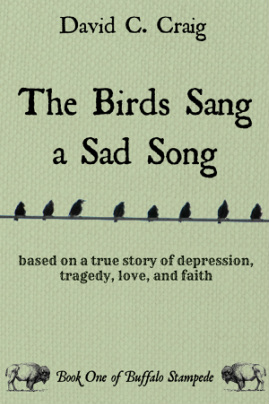
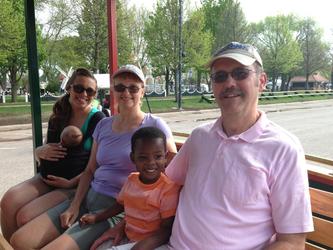


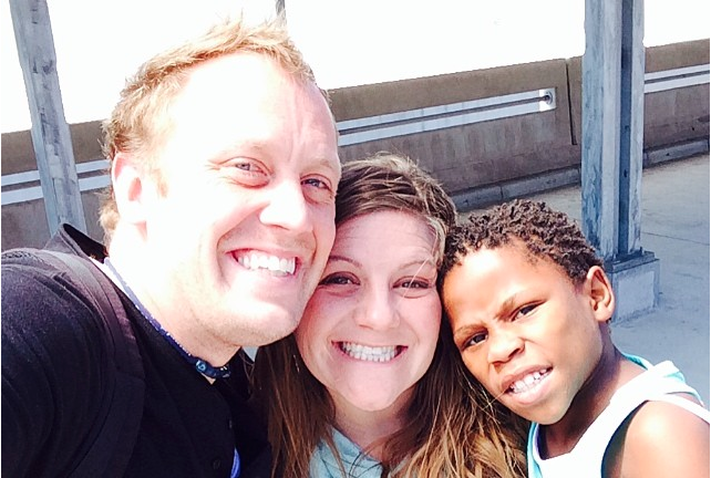
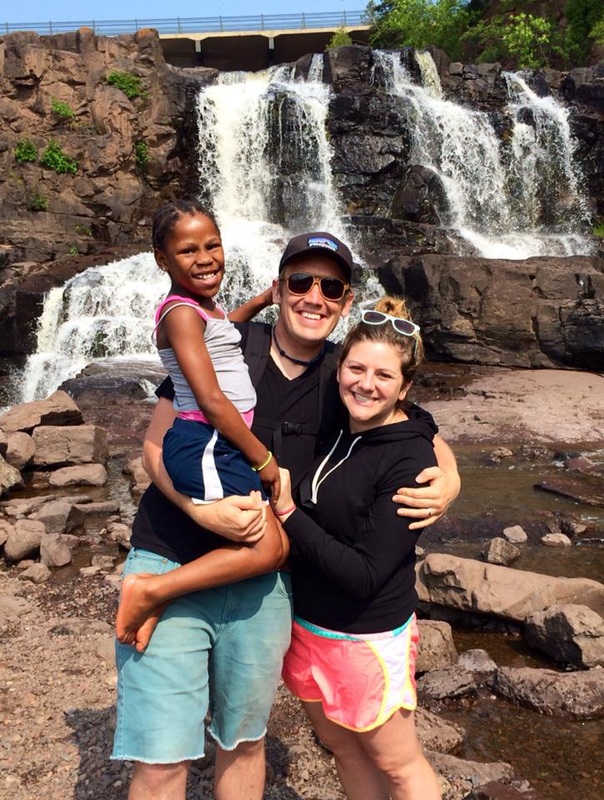


 RSS Feed
RSS Feed